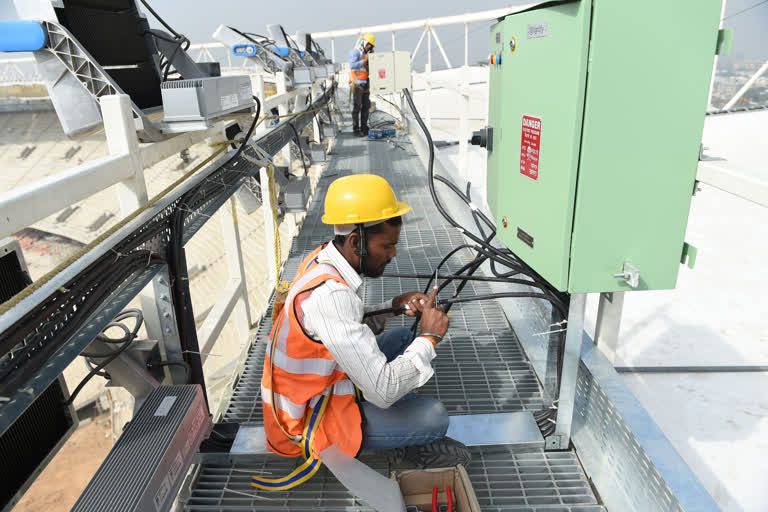Hyderabad: Last week, Prime Minister Narendra Modi used the occasion of World Youth Skills Day to urge Indians to skill, reskill and upskill themselves. To his credit, the Government has committed plenty of resources to the flagship Pradhan Mantri Kaushal Vikas Yojana. However, there has been no discernible skills revolution.
In fact, India continues to be in an odd situation where on one hand there is constant criticism about the lack of jobs, or at least the lack of good jobs, while on the other hand employers complain they suffer from a shortage of qualified persons to hire. Have society and the polity, in their explicit and implicit preference for putting ‘education’ first, relegated skills into the shadows where there is limited demand?
Societies everywhere differentiate between education and skills. In the West, one very common comparison is of plumbers with teachers. Depending on where a person stands, she or he may react with either delight or shock when confronted with the reality that plumbers often earn more than teachers, even teachers in public universities. But, in advanced economies, skills provide good monetary returns and there is the dignity of labour.
In India, societal preference is near-unanimous for white-collar office jobs, which usually go to persons with an “education”. This usually manifests itself in people lining up to obtain university degrees which, in a majority of cases, are unhelpful with employability.
The frequent spectacle of people with one or two university degrees lining up to apply for the lowest level of government employment (which would pay significantly less than a skilled profession with no university degrees) in numbers is a serious indictment of the “education first” system.
Read more:India's gross debt seen at 88% of GDP in FY21: SBI Report
This societal preference is reflected in policy choices over a long period. Indian State’s have over-invested in higher education while ignoring primary education and skills. Perhaps, the dismal state of learning outcomes in primary education, brought out year after year in the ASER report by Pratham, is a reason for low uptake of skilling programmes.
After all, an individual should have imbibed some basic education to learn a skill. But clearly, a very large number of those who do manage to learn through primary and secondary school opt not to skill themselves, choosing a generalized higher education degree or stopping formal learning after class X or XII.
The Government can nudge society into changing its preferences. One way is to give skilling institutions, like the ITIs, for example, university status. The purists would scoff at the prospect of equivalence, but pragmatism requires that those opting for skills can earn BA or BSc in electrical work, plumbing, carpentry, culinary skills, beautician techniques and so on.
The nature of skills is also changing. The future belongs to those who can adapt to a rapidly changing technological landscape. Much like a BA (General) or BSc (General) course, there can be courses which teach a range of soft and hard skills (rather than a single skill) which increases employability.
In the end, if India is to execute a skills revolution, there must be seamlessness between education and skills. It requires strengthening the primary and secondary school system, particularly on learning outcomes, after which those with an aptitude for skills move into a separate stream from those who would continue in with liberal arts or science studies.
But, at the end of college, both sets of persons would have Bachelors’ degrees. That is the only way societal preference will change. That the skilled can earn more than those with a PhD should only be an added incentive.
(Dhiraj Nayyar is Chief Economist at Vedanta Resources Ltd. Views are personal.)



